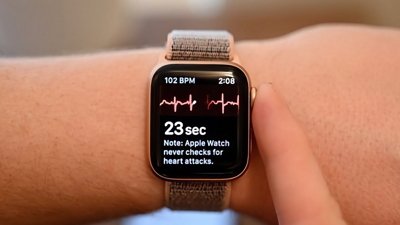Apple, Palm taking different steps to reduce worker overhead
While Apple is giving its phone rival Palm a drubbing in the market, both are now known to be scaling back their work commitments to employees — though Apple is using creative reassignments to soften the perceived blow.
The Cupertino-based firm is conscious that any retail layoffs would give a negative impression of its health and hurt its share value, and instead plans to scale back the hours worked by its part-time Mac Specialists that greet customers and promote products. This would keep them on the store floors while trimming employment costs, those aware of the changes say.
To compensate for the shortfall, Geniuses normally assigned to servicing products and answering questions will be asked to spend four of their weekly hours in the Mac Specialist role. Creatives manning the Studio sections of some stores will be asked to work as many as eight hours selling products.
How this pans out is still to be determined. Apple is running trials of this shuffled retail management to learn whether it should expand the reorganization on a broader level or consider alternatives that may include shelving the plans.
What's less than ambiguous, however, is a more drastic move by Palm. The beleaguered Treo maker has confirmed rumored restructuring to CNET and will take the much more direct approach of laying off employees in a bid to get its finances under control.
Company spokeswoman Lynn Fox isn't specific as to the lost head count or the reasons: she explains only that the job cuts are necessary to cope with Palm's "challenges" and that the firm needs to "focus [its] efforts more effectively."
While a struggling US economy plays into Palm's difficulties, the early smartphone pioneer no longer has the foundation of a successful business to cushion its fall. The company recently posted a $42 million loss and has been effectively ousted from its leadership role in the US workplace. Both Apple's iPhones and Research in Motion's BlackBerries have stolen Palm's market share in a market that was once considered a mainstay for the Treo line.
The Sunnyvale, California device maker also has to face a largely stalled product development process. Its Linux-based replacement for PalmOS 5, codenamed Nova, is overdue and now isn't set to ship with smartphones until the first half of 2009. Until then, the company is primarily relying on sales of its popular but low-profit Centro and its Windows Mobile-based Treos to sustain its business.
In a move that brings the company's difficulties full circle, Palm is also counting on former Apple senior engineering VP Jon Rubinstein to revive its fortunes by reorganizing Palm's staff and emphasizing better design.
 Katie Marsal
Katie Marsal










 William Gallagher
William Gallagher
 Christine McKee
Christine McKee
 Michael Stroup
Michael Stroup
 William Gallagher and Mike Wuerthele
William Gallagher and Mike Wuerthele


 Chip Loder
Chip Loder
 Andrew Orr
Andrew Orr






